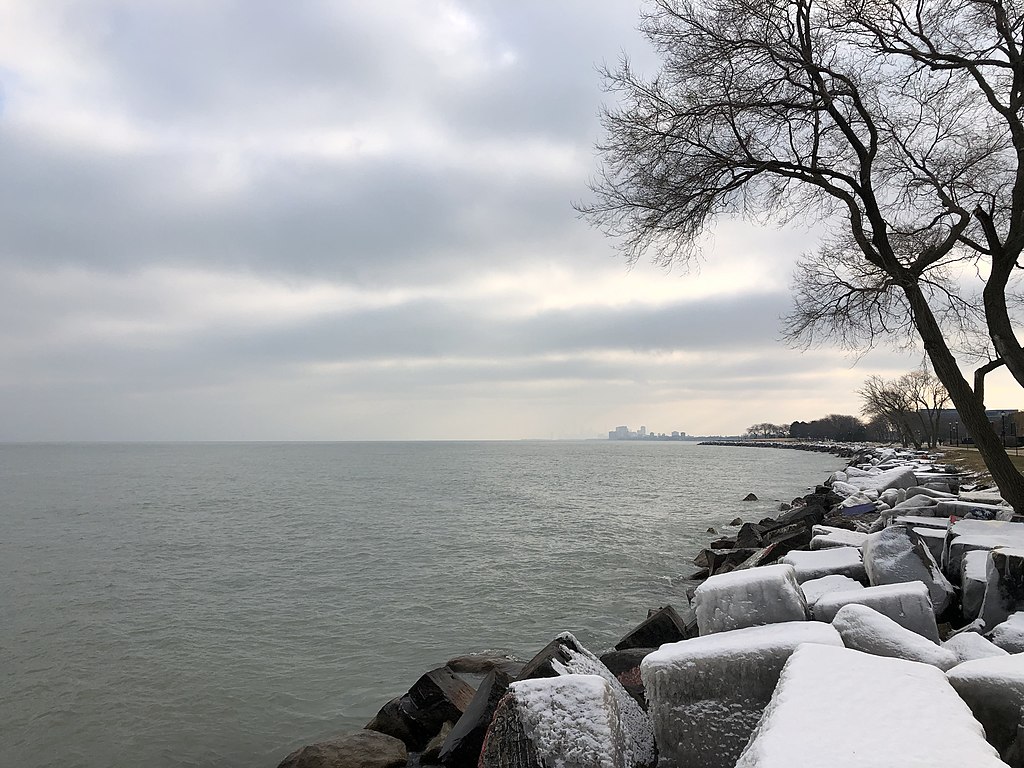Summer in Chicago. Day five
with the cousins.
You are with your sister at a different lake.
When you come home we will divorce.
We have not told the boys,
who are running to the edge of Lake Michigan
and back up the hill,
playing a game of war with three sides.
They are just old enough I no longer worry they will survive.
The Lake is low in June.
I show my sons the first place I took you
to show you something about my life:
concrete slabs
that press the campus footprint
in a shape of water
winged in grass,
this place of anniversaries
where something now will not be remembered.
I know we sat together much farther down the lakefill,
near the beach.
There was a feeling of first seeing the Lake
that I wanted to describe to you,
how the ice and snow made places
firm enough to start in any direction.
One night I nearly walked to Wisconsin
with a friend.
On the bright ice
we traced the jeweled campus
and the water beneath us made no noise.
The water in the Lake does not rise this close to shore.
It only comes and goes,
trapped in places
where it keeps making the same mistakes.
Our oldest son
who looks the most like me
calls me over to a fresh-painted rock.
“Is this the place you said to spread your ashes?”
He remembers his great-grandfather’s funeral
and the giant bowl of ashes in your closet.
“Yes,” I say.
His brother starts crying.
What is written on the slabs
makes them beautiful:
marriage proposals, half rainbows, bits of verse
from yearbooks:
Not all those who wander are lost.
We love the things we love for what they are.
Near the path
I stop to take a photo
of these last days before the divorce:
three boys facing the water
in soccer jerseys.
Our youngest son is nearly floating across a blue sky.
His brother is jumping between the rocks,
across the water.
What is written on these stones
can be read clearly
even in winter, under the ice.
Click here to read John W. Evans on the origin of the poem.
Image: Wyu0989, CC BY-SA 4.0, via Wikimedia Commons


